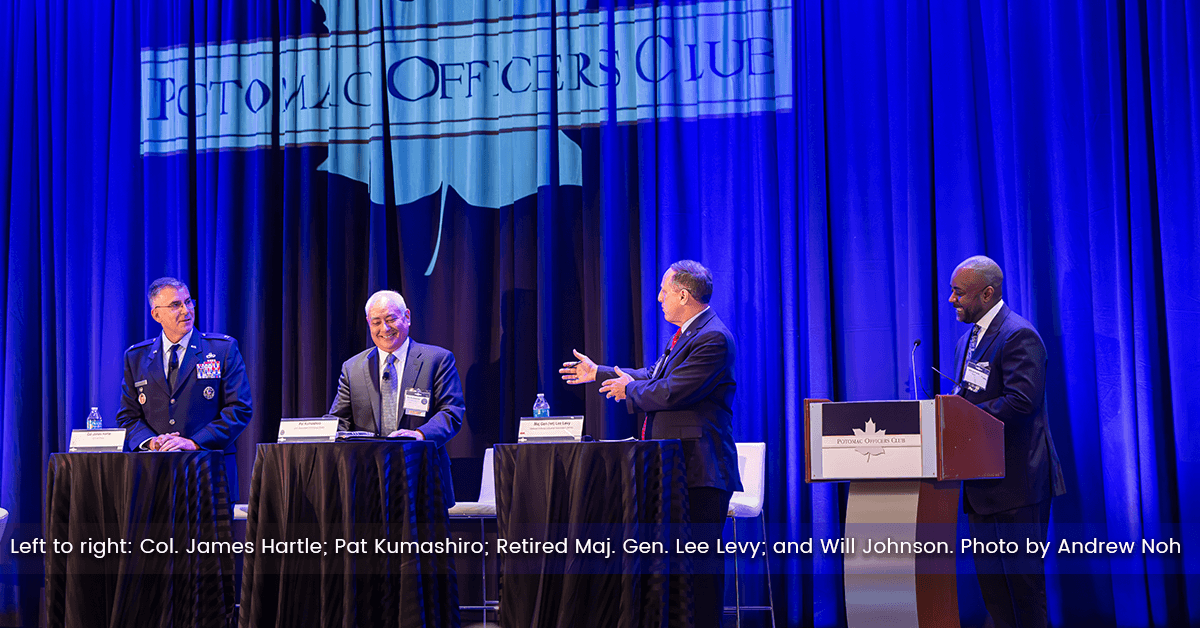All of the four-star generals of the U.S. Air Force and the vast majority of three-stars assembled in June at a table top exercise that demonstrated various scenarios regarding strategic maneuvers required when carrying out logistics in contested settings and conditions. The service’s leaders saw it as a highly beneficial process that is necessary in a time period that feels like a transition era in terms of geopolitical dynamics.
“When we were able to get this contested logistics issue in front of all of our senior leadership in the Air Force for about four hours, in one room, a lot of light bulbs went off [and] we really kind of saw the impact that it has to many of the thoughts and how we’re going to maneuver within a contested battle space,” explained Col. James Hartle, associate director of logistics within the deputy chief of staff for logistics, engineering and force protection at USAF headquarters. The exercise was held at the CORONA-South summit at MacDill Air Force Base in Tampa, Florida.
Is your interest piqued? Have several burning questions about contested logistics popped into your mind that you need answered ASAP? Leave it to the experts. Register and attend the Potomac Officers Club’s Sep. 14 Preparing for the Contested Logistics Era Forum. It will be hosted at Falls Church, Virginia’s 2941 Restaurant and feature incomparable lessons and investigations into this increasingly relevant topic.
Hartle participated in a panel discussion about contested logistics at the Potomac Officers Club’s 2023 Air Force Summit on July 18. One of his discussion partners, Pat Kumashiro, senior advisor for F-35 sustainment at the office of the undersecretary of Defense for acquisition and sustainment, stressed how the sustainment strategy of the Air Force and the Department of Defense as whole was formulated and honed “years ago in a steady state, [a] more benign environment.”
Kumashiro went on: “Clearly the geopolitical framework has evolved and changed over the last couple of years. And there is a focus of, can we mature our sustainment strategy? How do we balance the reliance on our industry partners and contractor logistics support in that contested environment?”
What exactly the private sector’s role is in helping execute military logistics in contested environments was a theme that ran throughout the panelists’ comments.


The third, integral member of the panel was retired Maj. Gen. Lee Levy, former commanding general of the Air Force Sustainment Center within Air Force Materiel Command. Levy highlighted the prevalence of government contractors in vulnerable scenarios during conflict, sometimes playing, he asserted, as crucial a role to the fight as uniformed service members. When a situation is contested, Levy wonders how contractors will be handled and what their protection will be, and how to square that with the precautions needed for warfighters on the front lines.
Levy described how the DOD has a two-tiered maintenance and support system: defenses orchestrated at the flight line or field level and then those conducted “somewhere else” (e.g., where the GovCon and industry members are located). He worries that the current apparatuses make for “very little capability to sustain a long-term fight.”
Countering with some optimism, or at least a plan for the way forward, Kumashiro said a dependable future means a healthy partnership between the defense industrial base and the organic industrial base, which comprises the government-owned (as well as government-owned, contractor-operated) facilities that manufacture, house and exterminate munitions.
“But our north star is clearly focused on the joint concept for contested logistics. Is it survivable? Is it responsive?…When you think through the framework of those attributes that the warfighter needs to have in that environment, that is where we need to drive a level of balance between the sustainment support that both the U.S. services provide,” Kumashiro said.
The OUSD A&S executive also mentioned international collaborators’ essential function in this DIB/OIB cooperation, sharing that the U.S. “rel[ies] on regional warehouses from our international partners and think[s] through how do we move parts around that [area of responsibility].”
The panel’s moderator, Leidos Senior Vice President Will Johnson, left audience members with an even sunnier sentiment, despite what the participants had identified as constantly evolving subject field beholden to sudden geopolitical shifts: “I tell my team all the time, it’s a great time to be in [logistics and mission support].”
Properly hooked on learning where the future fight is going in this incoming age of contested logistics? Then you don’t want to miss the Preparing for the Contested Logistics Era Forum, from the Potomac Officers Club. It will be hosted on Sep. 14 at 2941 Restaurant in Falls Church, Virginia and be accompanied by a delicious breakfast. Save your spot today!







